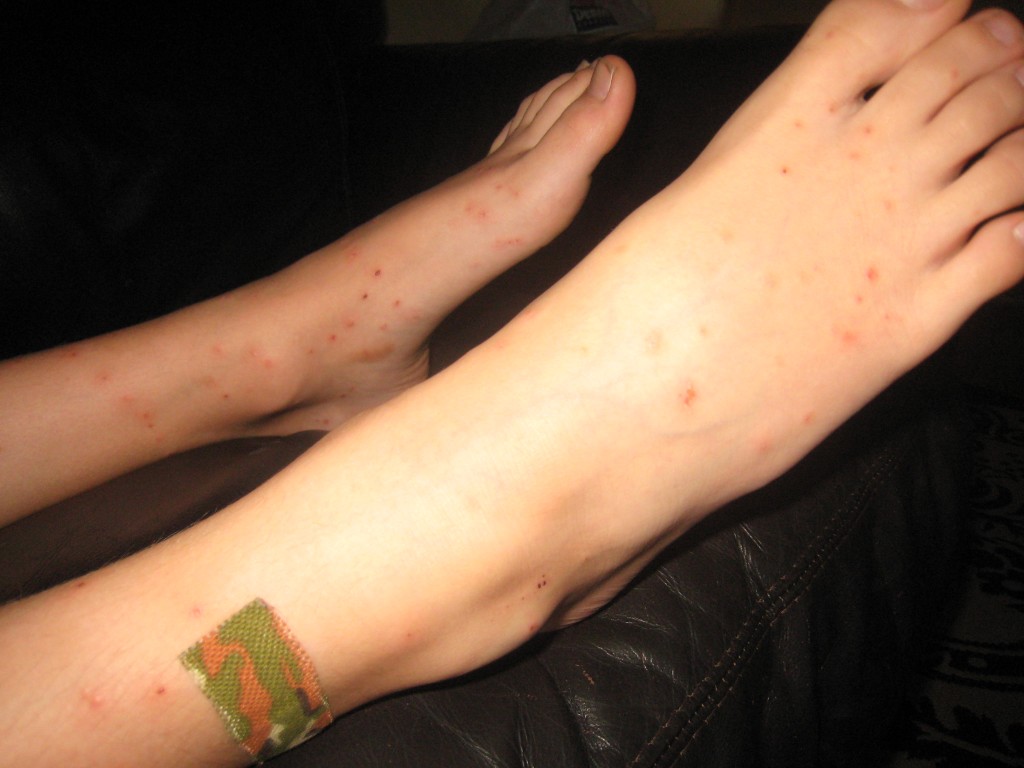Tag: bumps’
Beware the Pretty Birds!
- by KitchenPantryScientist
We spent last week in Iowa at a family reunion at lake Okoboji, a deep, clear, gorgeous lake near the Minnesota border. My great grandparents had a cottage there, and every year my mom’s side of the family returns to spend a week swimming, fishing, going to the lakeside amusement park and just hanging out.
Gull Point is a pretty piece of land with a sandy beach and sandbar that juts out into the lake and is one of our favorite destinations. Each year we spend an afternoon or two there, swimming, skipping rocks and digging our toes into the sand. We didn’t see many gulls this year, but there was a pretty white pelican hanging out nearby. Little did I know that water birds carry a tiny parasite that infects snails in the water. The parasite’s larvae are then released and swim around looking for a suitable mammalian host to burrow into and continue their life cycle.
Ignorant of the tiny bugs digging into our skin, we frolicked in the water for hours.
Humans are not a good host for these parasites and they soon die, leaving their buggy corpses under our skin. Some people don’t have much of a reaction, but others have immunes systems that kick into high gear, rejecting the dead parasites with an inflammatory response in the the form of big, itchy, awful bumps.
My son is definitely allergic. The CDC website has more information on Swimmer’s Itch, or Cercarial Dermatitis, which can also be found in many Minnesota lakes. Generally, it doesn’t need much treatment except Hydrocortisone cream or Calamine lotion. My daughter and I have a few itchy bumps, but nothing major. My son, on the other hand is on oral prednisone too calm his allergic reaction. Needless to say, it has been a long, long week.
According to the University of Minnesota’s Extension Service, you can do the following things to reduce your chances of getting severe swimmer’s itch:
- Dry off as soon as you leave the water. Rub skin briskly to remove water drops before they evaporate. Be sure to dry underneath waistbands and around leg openings. Encourage children to dry off thoroughly each time they leave the water.
- Shower with soap and fresh water or change into dry clothes as soon as possible.
- Don’t wade or play in shallow water. Swimming from a raft or pontoon minimizes your exposure.
- Don’t feed geese and ducks near your beach. Waterfowl are an important adult host for the parasites.
You can also go to http://checkmylake.com to search for specific lakes to see if they’re safe for your family to swim in. I wish I would have checked!
